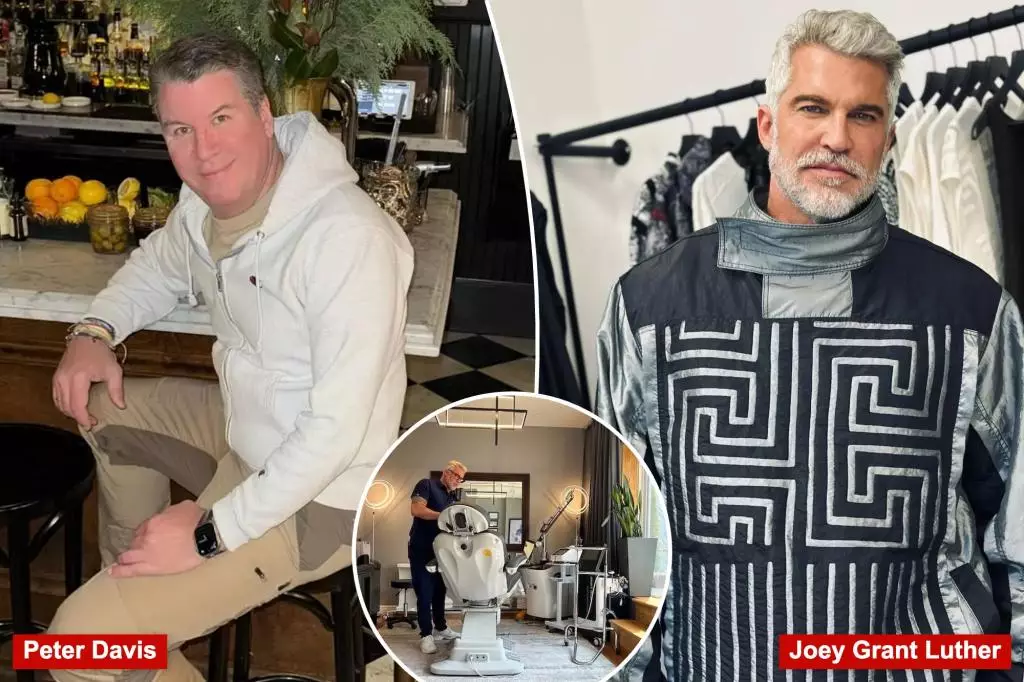In what can only be described as a shocking revelation for beauty aficionados and socialites alike, Dr. Joey Grant Luther has recently found himself at the heart of a scandal that has raised eyebrows across the cosmetic community. Known for his charm and affordable rates, Luther operated JGL Aesthetics, an alleged med spa that offered various injectable treatments, including Botox. However, the glamour of his services now shades a dark underbelly, revealing the dangers associated with seeking discounted cosmetic procedures. It appears that what was marketed as an elixir to youthful beauty turned out to be, in some cases, a toxic gamble.
With bold claims of being able to enhance one’s appearance at a fraction of the market rate, Luther attracted a star-studded clientele who were eager to exchange the price of a luxury dinner for a youthful visage. However, as some former patients have disclosed, these bargains came with unforeseen consequences. Reports have emerged of potentially life-threatening side effects linked to counterfeit Botox sourced from dubious origins, which have left several with alarming symptoms such as double vision and even hospitalizations due to botulism.
In the wake of this startling scandal, a new phenomenon has emerged: a support group called “Former Lutherans.” This gathering serves as both a community of shared trauma and a knowledge-sharing hub aimed at finding safer, legitimate alternatives for cosmetic treatments. Notable figures, including Peter Davis, editor-in-chief of Avenue magazine, have publicly acknowledged their past affiliations with Luther, combining humor with horror as they recount their experiences. Davis’s candid admittance of being a former patient comes with an eerie realization: “It’s a miracle I still have a face.”
The group chat allows clients who once frequented Luther’s services to collectively process their fears and concerns, share information about licensed practitioners, and navigate an emotional landscape marked by betrayal and vulnerability. As Davis notes, these discussions serve a crucial purpose: “They are all just freaked out and swapping information on legit new doctors.” The sense of community and support among former clients highlights the human tendency to seek solidarity when confronted with organ failure or physical harms tied to misleading deception.
Further complicating the narrative is the profile of Luther himself. The 54-year-old operator not only ventured into the realms of facial aesthetics but also surprisingly offered dubious services like penis enlargement. The lengths to which Luther went to create the illusion of legitimacy in an unlicensed practice have become subject to scrutiny: utilizing a residential apartment rigged to mimic a med spa and enthusiastically accepting payments via applications like Venmo. Such actions hint at a well-crafted facade designed to exploit the naivety and trust of his clientele.
Patients, often seen as mere participants in beauty enhancement, are now portrayed as victims of vulnerabilities and societal pressures. The tragic irony lies in how the desire for beauty could lead to serious medical repercussions. The alleged negligence from Luther speaks volumes about the importance of regulation within the cosmetic procedure industry.
Luther’s legal troubles mark a critical juncture for those involved in the beauty industry. Charged with wire fraud and the illegal distribution of misbranded drugs, he now faces the possibility of serving up to 20 years in prison. The case has raised significant questions about the ethics and oversight of cosmetic practitioners across the country. As healthcare becomes increasingly privatised, the urgency for patients to verify the qualifications of their providers has never been more pronounced.
Consequently, the scandal serves as a poignant reminder of the need for heightened vigilance among consumers seeking aesthetic enhancements. In an industry rife with unsanctioned practitioners, knowledge, awareness, and community support become invaluable tools for empowerment and safety.
Ultimately, the saga surrounding Dr. Joey Grant Luther transcends a mere tale of fraud; it is a critique of societal pressures surrounding physical appearance and trust within the medical community. As beauty standards evolve and cosmetic procedures become more mainstream, individuals must remain well-informed and cautious. The cries of the “Former Lutherans” beckon a broader conversation about ethics, safety, and the profound impact of deception within a field that aims to heal but can inadvertently harm. In navigating the delicate balance of beauty and trust, the cautionary tales of the past may illuminate healthier pathways for the aesthetic journeys of the future.


Leave a Reply